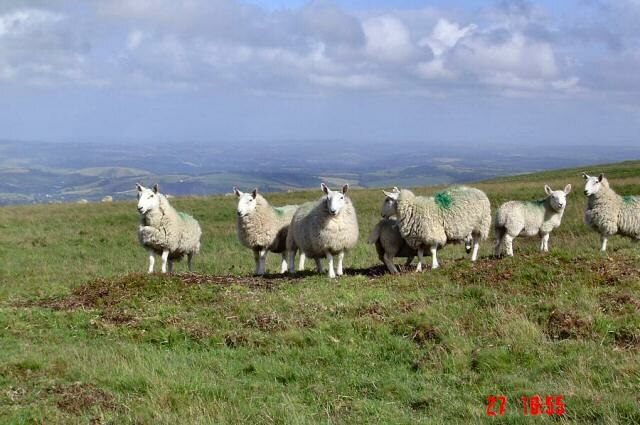
Britain’s uplands are dying. Places that should be wildlife havens are wastelands. Across some of our most stunning landscapes, life is draining away. Heather, bilberry and insects have given way to overgrazed, sheep-wrecked disaster zones. For a nation of nature lovers, it’s shameful.
Dartmoor is the worst of all. Its commons show everything that’s wrong with upland management. A recent Natural England survey found just 26 hectares out of 22,494 in good condition – a pitiful 0.1%. Every bog, every heath, degraded. Many still getting worse.
On the high moor, purple moor-grass dominates where there should be rich blanket bog. It thrives on damage – drained peat, erosion, burning and relentless grazing. Sphagnum moss, the lifeblood of healthy bogs, has been pushed aside. The result? Mile after mile of rough, useless tussocks. Sheep finish off what little heather remains.
This is a textbook tragedy of the commons. Land pushed far beyond its limits. And taxpayers footing the bill.
The blunt truth: farming here doesn’t pay. A 2023 Duchy College report found every ewe on Dartmoor commons loses its owner nearly £17. Losses covered only by subsidies. From the 70s to the 90s, the more animals you grazed, the more you earned. Later schemes paid farmers to cut numbers. But never enough.
Take the Forest of Dartmoor. Current rules allow 0.52 ewes per hectare. Yet Natural England’s own research shows nature only recovers when rates drop below 0.4.
Here’s the scandal. Over £32 million has been handed to Dartmoor farmers in the past decade through so-called stewardship schemes. Their purpose? To restore nature. The result? Not a single common improved. Many have declined.
Natural England tried to act. In 2023, it demanded reduced grazing before extending schemes. Farmers revolted. Ministers intervened. Natural England backed down. Subsidies continue. Laws go unenforced. Now campaigners have forced a judicial review, due in July.
And for what? Dartmoor produces next to no food. Its land is in the least productive 20% of land, yielding less than 3% of England’s supply. So we are bankrolling an industry that destroys nature, loses money and barely feeds us. It’s madness.
We are in a climate and nature crisis. We cannot afford inertia. This land should be restored, not farmed into oblivion. Dartmoor’s bogs could lock carbon and regulate water, cutting flood risks. But only if sheep go, bogs are rewetted and left to heal. Public money should fund recovery – not destruction.
Some farmers want change. They deserve support to bring back nature with sustainable grazing and better practices. Those who refuse should be penalised. Wrecking protected land should be treated like fly-tipping or arson.
The time for compromise has passed. We are paying millions for ecological collapse. Dartmoor and our uplands are broken systems. If we care about nature, climate or simple fiscal sense, we must stop funding failure. Instead, invest in life: carbon-storing peat, thriving wildlife, landscapes that breathe.
The uplands need a future. That future means change – radical, urgent, unapologetic.
——————————————————————————
At Natural World Fund, we are passionate about restoring habitats in the UK to halt the decline in our wildlife.

